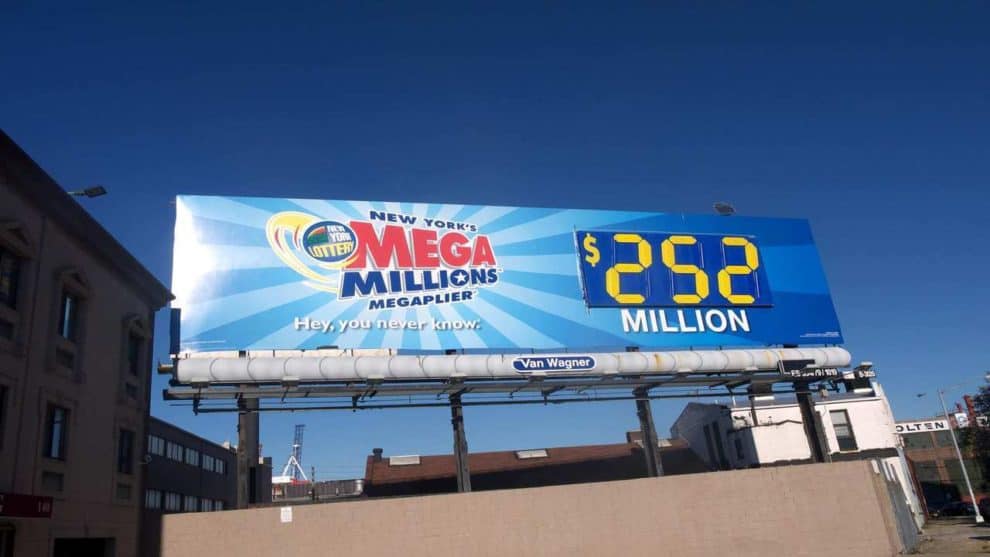
- The nationwide Mega Millions Lottery Jackpot hit for $1.337 billion USD on Friday night.
- Mega Millions games are available in 45 US states plus the District of Columbia and the U.S. Virgin Islands.
- The odds of winning the Mega Millions Jackpot are just over 1 in 302.5 million
Now that we’ve talked about expected value in theory, let’s look at it in the specific case of the lottery. One of the recurring images of any big lottery jackpot is long lines of people seeking to purchase tickets, and the same people with their arms full of tickets hoping to ‘improve their odds’ at winning the big prize. One thing that has been demonstrated–though not particularly surprising–is that the bigger the jackpot for a given drawing, the more tickets are sold in advance of that drawing. That’s why the two big networked lottery games changed their rules a few years back to make rollovers to huger jackpots more likely.
The simple way to address the ‘EV’ question with the lottery is to divide the jackpot amount by your odds of winning:
1340000000 / 300000000 = 4.46
So that’s an expected value of $4.46 right? Not so fast. This calculation is assuming the winner wants to spread his payments out over 30 years. You’re then getting into concepts like inflation, the future value of money, etc. If the winner takes the cash payout the top prize drops to $780 million USD. This changes the equation to:
780000000 / 300000000 = 2.60
That equates to $2.60 EV, but this assumes you don’t have to split the prize. In the most recent Mega Millions, the winner got lucky and took home the entire jackpot. Remember that the higher the jackpot = the more tickets sold. The more tickets sold, the greater the chances of splitting the prize. There are spreadsheets and charts that quantify this dynamic, but the easiest one to use is at the Wizard of Odds website.
The fact that lottery commissions can come up with a good estimate of how many tickets will be sold at any jackpot level. This is precisely why they’ve changed the rules to create bigger jackpots in Mega Millions games back in 2017. At a jackpot of 1.23 billion, the calculator figures 302.36 tickets sold. This point is significant as anything over 1.23 billion and the number of ‘expected winners’ begins to exceed 1. At 1.3 billion, the expected winners based on 317.02 million tickets sold is 1.05.
The Wizard of Odds site has an entire page devoted to the math of the Mega Millions game.
After factoring in the chance of jackpot splitting, the lower ‘cash value’ of the top prize and taxes (37% Federal, state taxes vary) the EV of a lottery ticket is .88 cents. Once you throw in the ‘consolation prizes’ it’s right at a dollar. An article at Forbes.com offered an estimate that including the smaller jackpots, the total EV of a Mega Millions ticket last Friday at the time of the drawing was $1.03 cents.
Note that this is for one ticket–and that’s really all you *should* buy if you’re determined to play the lottery. Buying multiple tickets significantly lowers your expected value without any legitimate chance of improving your jackpot odds.









